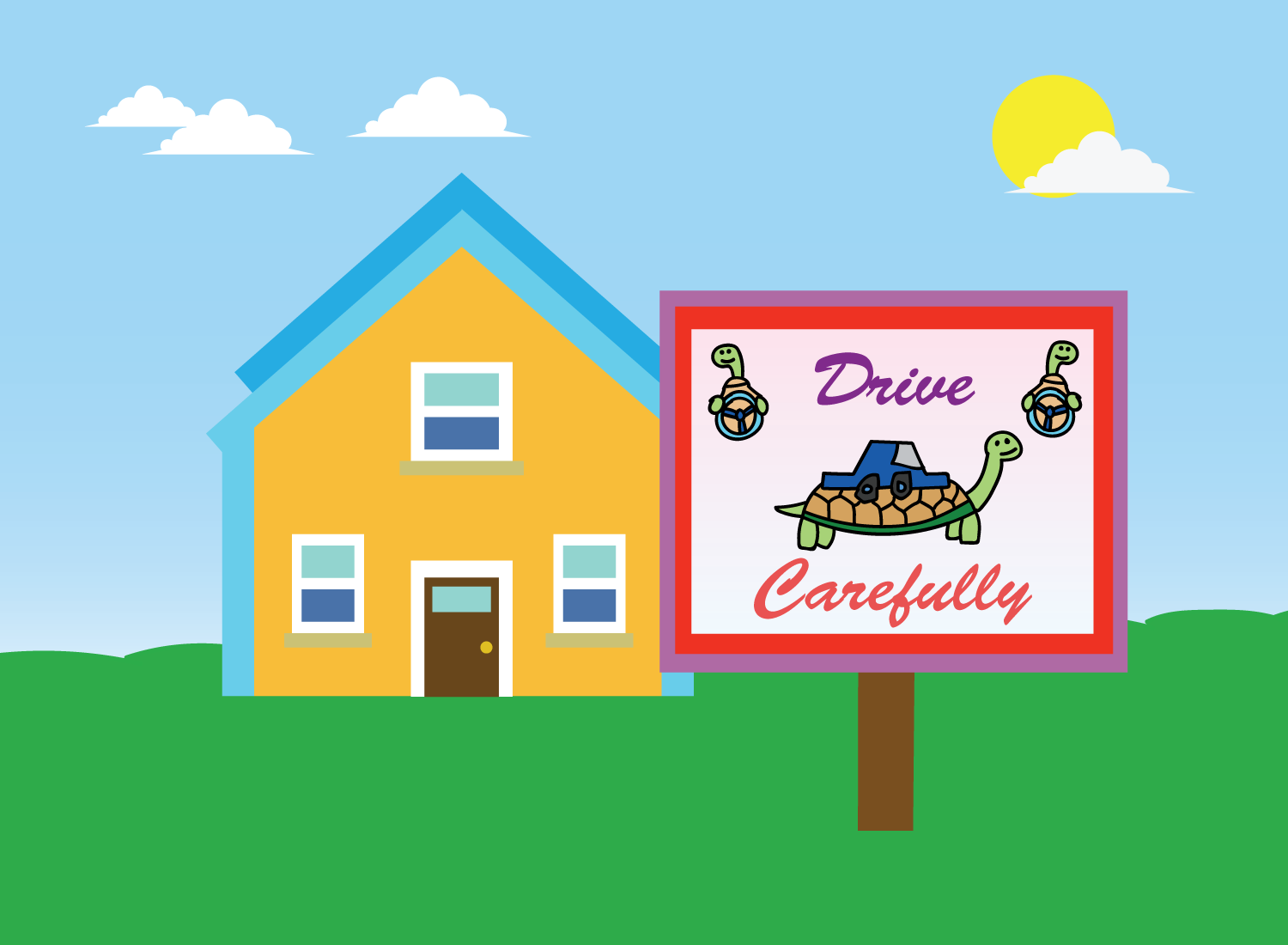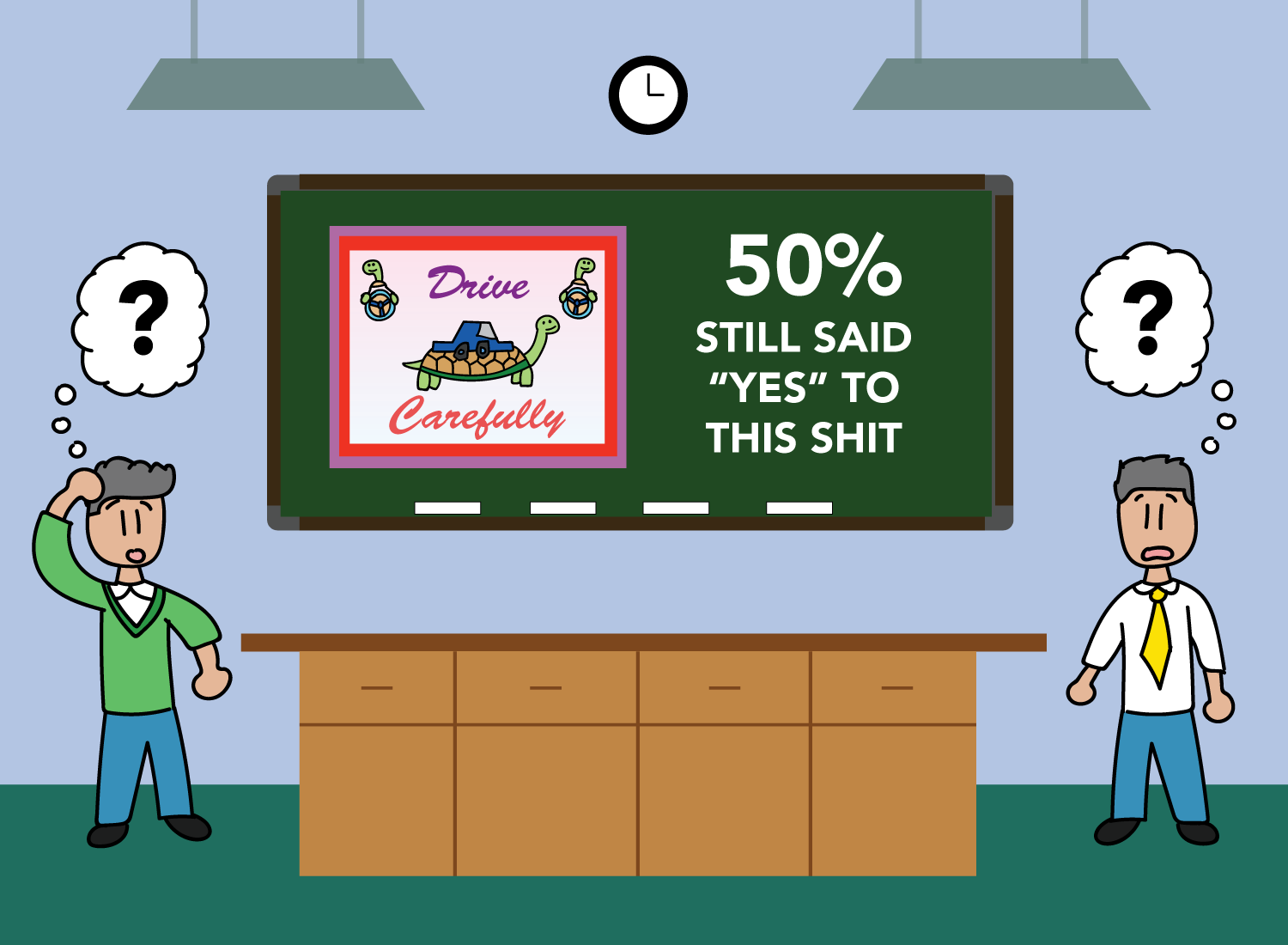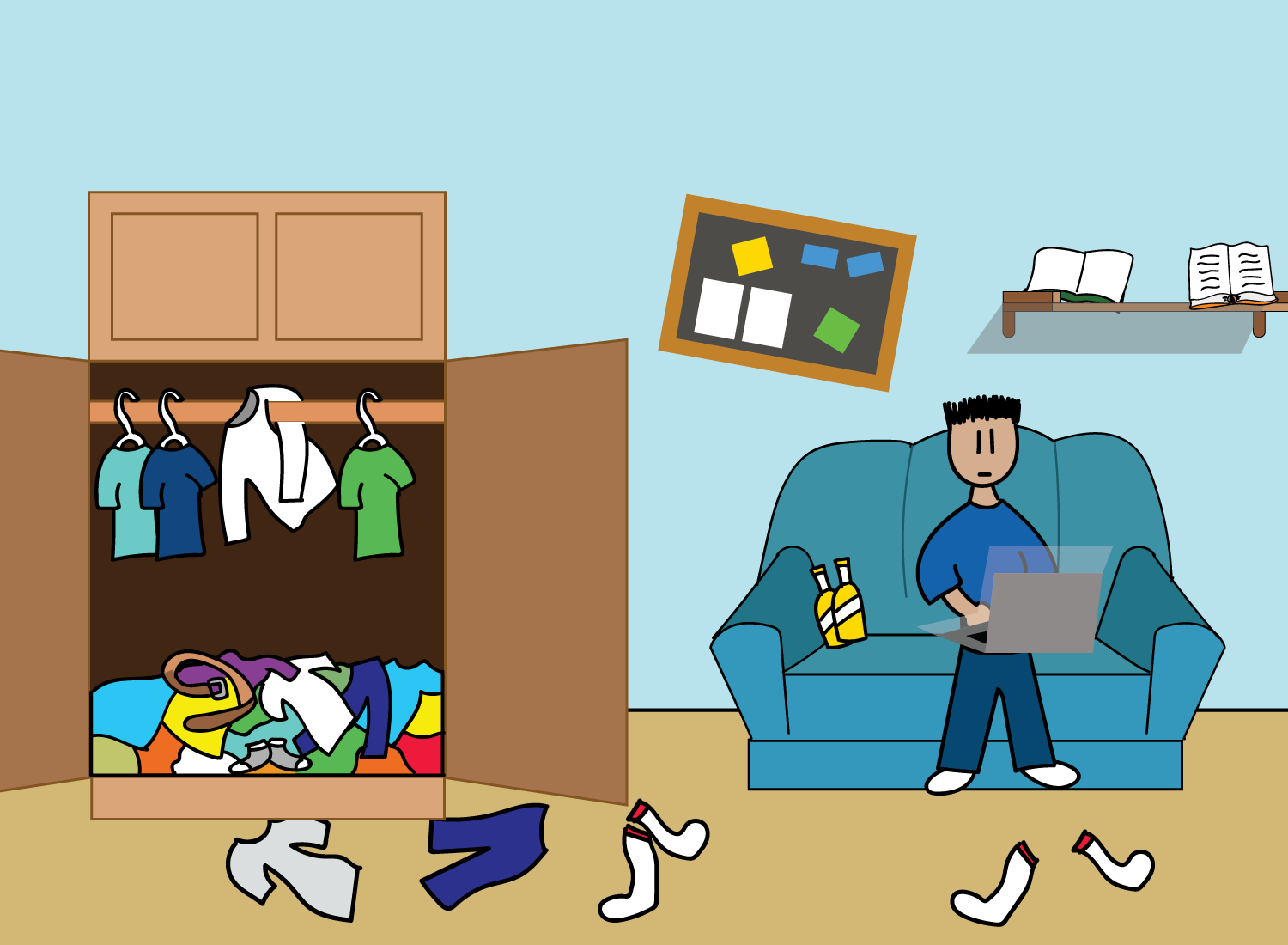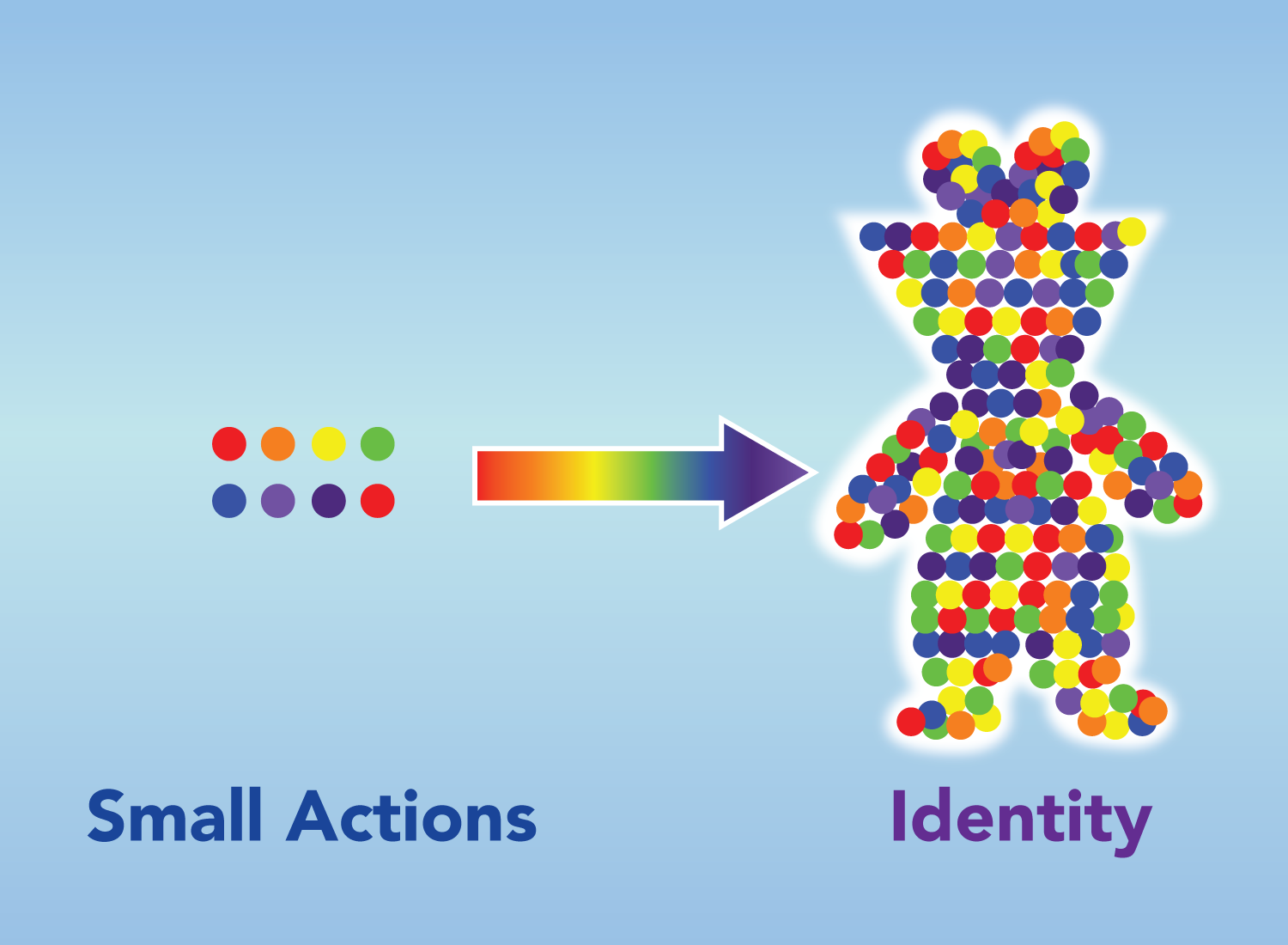The Small Things Are Big Windows Into Who You Are
In 1966, psychologists Jonathan Freedman and Scott Fraser published a bewildering study.
They reported the results of an experiment they conducted in a California neighborhood, where a researcher (posing as a volunteer worker) went door-to-door to make a ridiculous request of homeowners.
The researcher asked each homeowner if a sign could be installed on their precious front lawns. Its purpose was a noble one: it would remind people in the area to drive carefully.
To give homeowners an idea of how the sign would look, the researcher showed them a photograph of it. But the photo quickly revealed two things:
(1) The sign was fucking huge, and
(2) It was absolutely hideous.
When this experiment was run in other neighborhoods, they got the results you would expect. The vast majority of residents (83 percent) declined the request.
But in this neighborhood, the results were stunning. The great majority of residents – 76 percent of them – accepted the offer to have this hideous sign placed on their front lawns.
What accounted for this dramatic change in results? Why on earth would those homeowners willingly put that shitty thing on their lawns?
Well, as it turns out, one small act is all it took.
Two weeks earlier, a different volunteer worker came to the same neighborhood with a much smaller request. The worker asked each resident to display a small three-inch-square sign that read, “Be a Safe Driver”.
The request was so small that nearly every resident accepted it. However, this tiny act of compliance would have a remarkable effect. It made them much more willing to comply with an enormous request that would come just two weeks later.
Even though the effectiveness of this strategy startled them, the outcomes still made sense to Freedman and Fraser. They figured that the residents made a commitment to driver safety by accepting the three-inch sticker, so they wanted to remain consistent by accepting the hideous sign a few weeks later.
But what if the initial request had nothing to do with driver safety? Would the residents still accept the sign?
To test this, they had a volunteer go to a different sample of homeowners. In this procedure, residents were asked to sign a petition that would “keep California beautiful.” Nearly everyone signed this petition, as keeping your state beautiful is as noncontroversial as you can get.
Then two weeks later, the hideous “Drive Carefully” sign was requested of these same residents. Astoundingly, half of these homeowners agreed to have it placed on their front lawns, even though the initial request had nothing to do with driver safety!1
This result initially confused Freedman and Fraser, but after sorting through various explanations, they arrived at a likely solution to this puzzle.
When residents signed the state beautification petition, this shifted something within them. They made a small yet meaningful commitment to public service, which formed a new self-image in the process.
They were now the type of people that contributed to civic causes. Even though driver safety had nothing to do with state beautification, they both fell under the same umbrella of communal responsibility. The residents’ commitment to their new self-image was all it took to agree to such a ridiculous request.
One small act was able to shape an identity. In this case, it planted the seeds to drive irrational behavior.
But it can just as easily create positive and lasting change.
The Personal Path to Cleanliness
Five years ago, I was an incredibly messy person.
If you had asked my close friends about my living habits at that time, they probably would have laughed and just said that I had problems.
I wouldn’t do dishes, I would let my clothes pile up, I wouldn’t clean, you get the picture.
This was the story I believed: I was a messy person, so I did messy things.
But around two years ago, I started writing a lot, and noticed that having a clean work desk was helpful to my practice. The state of my desk would be a reflection of my clarity. If my desk was cluttered and chaotic, so was my mind.
So before I went to bed each night, I made sure that it was clean. That way when I went back to it again the next day, everything was good to go.
What I didn’t realize was that a self-image was being created with this small act. I was becoming the kind of person that cleaned my environment to keep a clear mind.
In the beginning, I may have justified it by saying that it was conducive to my writing practice. But as time went on, my tendency to clean my work desk evolved to tidying up places where I didn’t even write.
I started making my bed almost every morning, washing my dishes after using them, organizing my books after reading, and hanging up my clothes after doing laundry. Each action I took in support of my self-image would compound and grow with the next.
What’s interesting is that when I was a messy person, the same logic applied. Every time I threw my shirt on the floor and left it there, it further solidified the view I held of myself. I was the kind of person that kept things messy, and that seemed okay. This self-image justified further actions, and the disorder continued.
But the small act of cleaning my work desk made me realize that I’m actually not okay with this. That tiny shift made all the difference. It changed the perception I had of myself, and directed all subsequent actions as a result.
Sometimes you’re not even aware of these big shifts until a loved one points it out. The other day my cousin was over, and she was amazed at how pristine everything was. After seeing a clean workspace, a clean bathroom, and a clean bedroom (all on the same day), she came over to me and said, “Dude, Lawrence, who are you?”
And that was when it really hit me.
I am now the kind of person that keeps things clean.
What Small Acts Will You Choose?
We like to think of identity as this big monolithic structure, but in reality, it’s just a bunch of small everyday actions strewn together.
Freedman and Fraser showed us that one small action can reprogram the subconscious. One little petition was all it took to turn residents into champions of civic responsibility.
While their experiment offered a cautionary tale, my personal anecdote leans on the hopeful side. The small act of cleaning my desk was enough to trigger an identity change for the better.
This all funnels down to two important questions:
(1) Which of your everyday actions are contributing to an identity you want to avoid?
(2) What small actions can help you become the person you want to be?
As you ponder these questions, keep in mind that the small things you do are big windows into who you are. If you do a bunch of little shitty things, you will become a big shitty person. Conversely, if you do a bunch of little kind things, you will become a big kind person.
Focus on doing the small stuff, as they are the true drivers of change. You’ll be surprised at how effective this simple strategy can be.
_______________
_______________
Two additional reminders on the big power of starting small:








